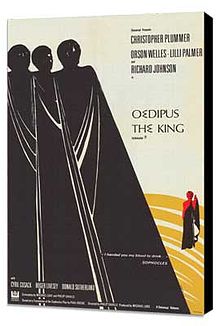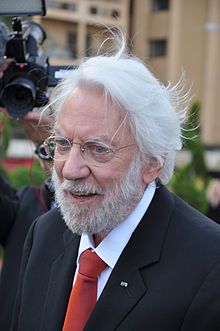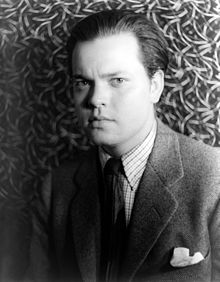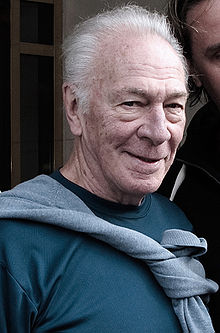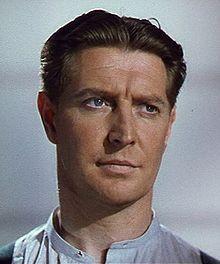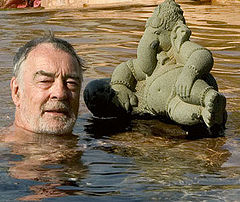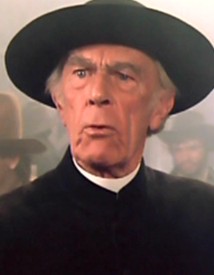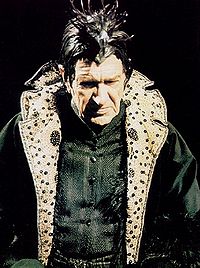Oedipus the King (1968 film)
Oedipus the King is a 1967 film directed by Philip Saville based on the Athenian tragedy Oedipus the King by Sophocles. The film boasts an allstar cast, including Christopher Plummer as Oedipus, Lilli Palmer as Jocasta, Orson Welles as Tiresias, Richard Johnson as Creon, Roger Livesey as the Shepherd, and Donald Sutherland as the leading Member of the Chorus. Sutherlands voice, however, was dubbed by another actor. Filmed in Greece at a ruined Greek theatre in Dodoni, it was not seen in Europe and the U.S. until the 1970s and 80s after legal release and distribution rights were granted to video and TV and was considered a rare film.
Despite its calibre of actors, the film was not universally well received. New York Magazine described it as almost comical in a September 1968 review a 1972 review said An elaborate production, overly academic and without much force or cinematic merit. However, in 1968 the Illustrated London News praised its cinematic fluidity and Jon Solomon in 2001 said that the film was distinguished by intensity and fine acting, with Plummers Oedipus boasting an arrogant, strongwilled title character. However, Solomon also remarked that the film would never have won first prize at an ancient Athenian contest. Leonard Maltin in 2006 said that the film version of Sophocles play is OK for students who have a test on it the next day, but others wont appreciate this version. The script was originally based on Paul Roches translation directly from the Greek done in the early 1950s. Penguin USA OEDIPUS PLAYSPAUL ROCHE. Torn between the dynamic theatricality of the Ancient Greek and modern realism the film loses what it might have had by lurching between. If Sophocles words, through the poetic translation provided by Roche, had been given full voice, in the amphitheatre at Dodoni , without the pretence of the real, the film could have become a cult. Sadly Producer Luke and Director Saville never quite gelled their ideas and an interesting 1960s experiment foundered in the confusion.
Source: Wikipedia

